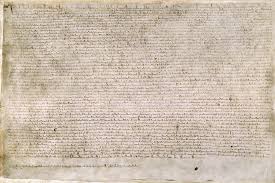The Enduring Legacy of the Magna Carta in Modern Society

Introduction
The Magna Carta, signed in 1215, is often heralded as a foundational pillar in the development of modern democracy and the rule of law. This historic document not only shaped the legal landscape of England but also laid the groundwork for civil liberties worldwide. In an era where discussions around governance and individual rights are ever more pressing, understanding the relevance and significance of the Magna Carta in 2023 is crucial.
Historical Context and Key Provisions
Originally drafted in response to King John’s tyranny, the Magna Carta was a means to limit the crown’s power and protect baronial rights. Among its notable provisions, the document established the principle that no one, including the king, is above the law. It introduced ideas that would later inspire constitutional frameworks across the globe, significantly influencing documents like the United States Constitution and the Universal Declaration of Human Rights.
The Magna Carta’s Relevance Today
In 2023, the Magna Carta continues to resonate in contemporary legal and political arenas. With increasing concerns over government overreach and the erosion of civil liberties, the principles enshrined in the Magna Carta serve as a reminder of the enduring struggle for individual rights and democratic governance. Recently, various protests advocating for more robust accountability and transparency in government actions have invoked the spirit of the Magna Carta.
Modern Interpretations and Applications
Moreover, legal scholars and human rights advocates frequently reference the Magna Carta in arguing for reforms that uphold justice and equity. Discussions regarding data privacy, personal freedoms, and the rights of the accused often draw upon the foundational concepts present in the Magna Carta. Various international organisations, including the United Nations, highlight its importance as a historical document that champions the rule of law, creating frameworks for peaceful resolution of conflicts and upholding human dignity.
Conclusion
The genesis of the Magna Carta was instigated by the need to curtail monarchical power and safeguard noble rights, but its evolution into a broader symbol of liberty and justice is arguably its greatest legacy. As we navigate complex social and political climates in 2023, the Magna Carta serves not only as a historical reference point but also as a beacon guiding contemporary discussions about rights, accountability, and governance. Understanding its implications can empower individuals and communities to engage in meaningful advocacy for their rights and freedoms, ensuring that the principles of justice and equity endure for future generations.









